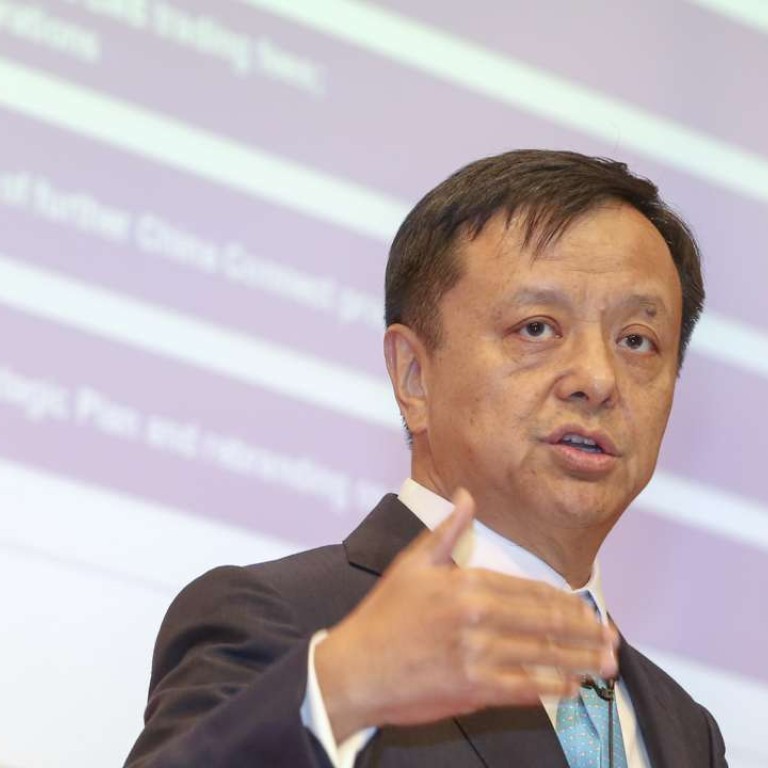
Call for a delisting mechanism for Hong Kong’s third board
The stock exchange must introduce a delisting mechanism for its proposed third board to better protect investors and match international best practice, say industry players.
Edward Au, co-leader of national public offering group at Deloitte China, said if the stock exchange wants to go ahead with its plan of introducing a new third board with a lower entry requirement for companies to list, it would need to introduce a mechanism to let poorly performing companies delist easily as well.
“An exit mechanism is essential to support any admission system in a capital market. It helps regulate and supervise the issuers in the post-IPO period, safeguard the rights and interests of the investors, as well as protect the interests of the issuers,” Au told the South China Morning Post in an interview.
“In many major markets, including New York, London and Singapore, a delisting mechanism is triggered when the stock exchange orders or the issuer requests trading halt and suspension, and a listing is withdrawn or removed if they meet certain conditions. Such a mechanism helps ensure issuers meet or continue to meet listing requirements, such as making all of the necessary required disclosure to the investors. It is critical to be able to isolate troubled or non-compliant businesses from investors.”
A good exit mechanism can also encourage corporate governance, he said. “For companies that see the value of staying public, the exit mechanism serves as a reminder of the importance of keeping or even lifting their governance standards and business performance.”
At present, the stock exchange has clear profit and assets requirements on what companies can list on the main board while the second board, or the Growth Enterprise Market (GEM), also has clearly laid down operational requirements. The companies that have been suspended for more than two years and fail to find a reasonable solution to resume trading are delisted but there are no other profit, asset or regulatory requirements for delisting.
In overseas markets, companies that fail to meet profit and certain other criteria are delisted. Nasdaq, for example, requires companies to be delisted if the bid price falls below US$1. In China, companies can be delisted if they breach rules and regulations.
Hong Kong Exchanges and Clearing chief executive Charles Li Xiaojia in January suggested the city could consider a new third board for companies that cannot meet profit requirements of the main board or the trading criteria of the GEM. Li had indicated the new board would have more flexible entry requirements for listing as well as an easy exit mechanism.
The idea has been supported by the Financial Services Development Council chairman Laura Cha but opposed by some brokers who are worried about the quality of such a new market. Securities and Futures Commission chairman Carlson Tong Ka-shing has said the third board should only be considered after the current review of the GEM is completed.
Christopher Cheung Wah-fung, legislator for financial services sector, said the exchange should revamp the GEM instead of considering launching a third board.
“The GEM was set up in 1999 to serve hi-tech companies to list but the quality of the companies on the second board isn’t good. If the new third board has an even lower entry requirement, we won’t be able to ensure quality. We have to worry about investor protection,” Cheung said, adding there would be no need for a delisting mechanism if the market improves.
Au, however, supports a third board as it would create a multi-tier market, which, he believes, would be an important step for the Hong Kong stock market to become more developed and competitive.
Some technology companies, most notably e-commerce giant Alibaba, have in the past chosen to list in the US, where dual shares structures are allowed, unlike in Hong Kong. Au said he believes the third board could help attract such companies to Hong Kong.
“There have been debates in the past on whether companies with different shareholding structures should be allowed to list in Hong Kong or perhaps on the GEM. The third board proposal has reopened this debate on whether such a market could indeed become an ideal venue for such companies,” he said.
“We believe this can be one way of attracting a different kind of investors as well as issuers of new hi-tech companies, or those that have different shareholding structures,” Au said.
Au said Hong Kong will increasingly face more competition from many other markets for start-ups in the mainland, such as Shenzhen’s ChiNext, the new third board in Beijing and a new market that is being set up in Shanghai.
But Au said it would need a lot of investor education before a third board is launched in Hong Kong.
“If the third board comes with lower entry requirements with an exit mechanism, it is likely to become a wide mix of companies with different potentials and possibilities, including future stars, average and poor performers, and distressed companies,” he said.
“As such, heavy investor education is needed, and professional investors with better risk management abilities would be more suitable for this board.”

